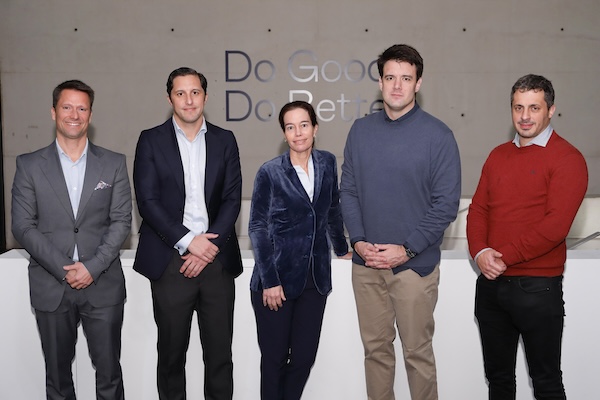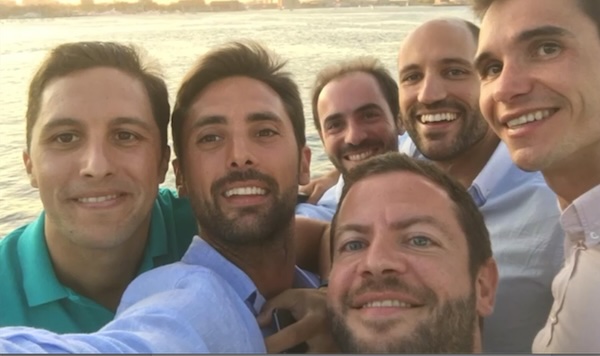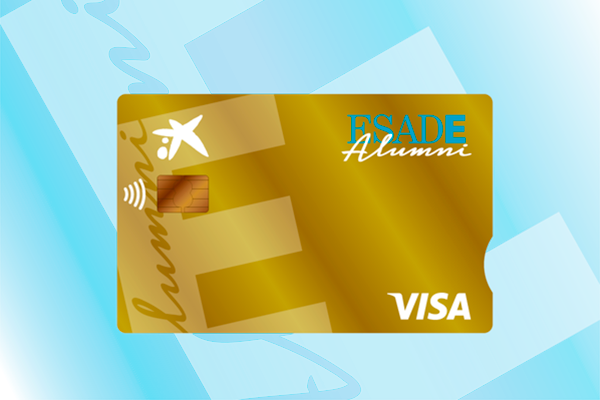The Esade Alumni Marketing Club organized this 30-minute gathering to meet three alumni who excel in marketing leading global brands

The online session “Marketing 30’ Global Break” brought together three prominent alumni who are leading the marketing at some of the most valuable brands in the world according to the Kantar World Brands ranking, namely Louis Vuitton, L'Oréal, and McDonald's, to share the challenges and rewards of managing some of the most iconic brands in the world.
The event, moderated by Floris Ruys (MBA 23), Board Member of the Esade Alumni London Chapter and Senior Marketing Partnership Executive, UEFA Champions League at TEAM Marketing AG, began by introducing the panelists: Will Collier (MBA 24), Global Marketing Manager at McDonald’s; Emma Caffrey (MIM 18), Head of Men’s Footwear Marketing and Development at Louis Vuitton; and Maja Uzelac (MSC 11), Chief Digital and Marketing Officer at L'Oréal for the Balkans region.
Inspiring careers
The first question the panelists were asked was about their careers and how they reached their current roles. Emma Caffrey shared a story of perseverance and a passion for luxury. Despite initially being rejected several times, her determination led her to earn a double degree from Esade with Bocconi, which opened the doors for her to join Louis Vuitton. “My career has been fairly simple because I began at Louis Vuitton and I haven’t left it yet. I’ve been there over six years now,” Emma said. “With Esade and Bocconi on my CV, I gained entrée into my first internship as an assistant to the product manager.” Since then, she has been promoted until she was named the Head of Men’s Footwear Marketing and Development. “In summary, it’s been a very easy journey. I’ve stayed at the company because it’s an incredible company,” she concluded.
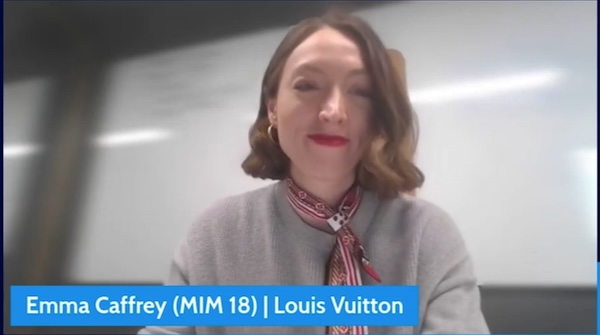
Maja Uzelac described her career as a natural progression to her current role at L'Oréal. Her passion for advertising led her to work at a creative agency, where she gained invaluable experience. “I initially fell in love with advertising when I was studying,” Maja recalls. Her time at Esade provided her with a solid grounding in marketing, which allowed her to work at Google before joining L'Oréal. “Esade really was the right choice. This is where I really learned the entire context of marketing, as well as the practical aspects. L'Oréal and this job were really the turning point of everything that had happened and that I wanted,” she said.
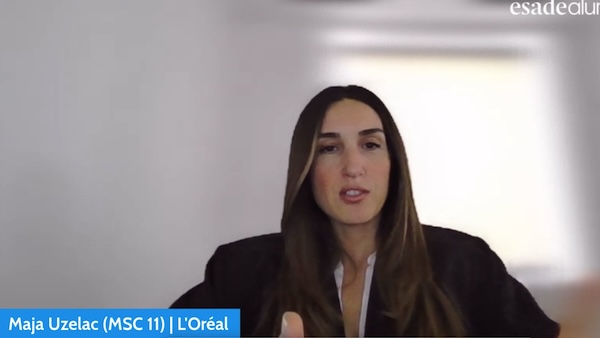
Will Collier outlined a somewhat unconventional career, which included aspirations to be an educator and chef before finding his passion in marketing. His experience at Capital One taught him the importance of working in an industry he is passionate about. “I think marketing is much easier when you don’t need to be convinced of the value of the product,” Will reflected. His fascination with the outstanding marketing at McDonald’s led him to do an internship in the company that eventually led to his current role. “When the time came to apply for internships during my first year at Esade, McDonald’s was my priority. And fortunately, I passed the internship and got a job offer,” he added.
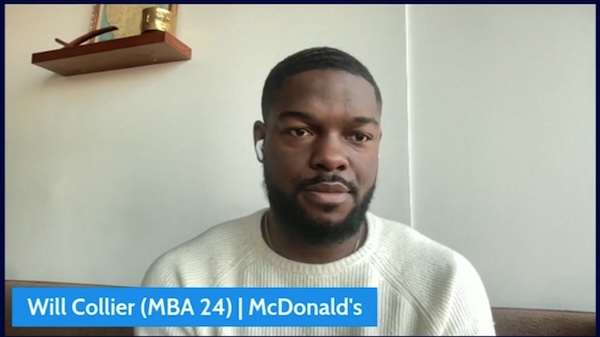
The role of marketing in global brands
The panelists discussed the essential role of marketing in their respective organizations. Maja Uzelac stressed that L'Oréal is a company driven by innovation and marketing, where the latter is the engine behind its more than thirty brands. “Marketing is a real fuel that drives all the brands that L'Oréal has in its portfolio,” Uzelac said. In a world saturated with information, the challenge lies in identifying the most efficient strategies and tactics to connect with consumers and generate a return on investment. “I think that where we have to be smart and delve more into data and understand trends is in deciding what battles and marketing efforts are the most effective,” she said.
Will Collier said that marketing is a key competitive advantage for McDonald’s, especially in a highly saturated sector. “At McDonald’s, marketing is the business’s main engine and truly one of the competitive advantages that our brand has,” he asserted. The company’s marketing strategy revolves around connecting with the culture, creating memorable experiences, and adapting to market trends. “McDonald’s operates in this highly saturated fast-food restaurant sector, with an indistinct product that is easy to imitate. Therefore, it is essential to have an intense approach of attacking the market with a certain degree of intentionality and creativity that truly resonates with people all over the world.”
Emma Caffrey described marketing as a cornerstone of Louis Vuitton, where collections are co-created with the marketing teams and designers. “I’m very fortunate that marketing is an essential part of the business at Louis Vuitton,” Caffrey said. Marketing in the luxury sector implies understanding consumer trends, competition, and customers’ expectations to create unique, exclusive experiences. “At Louis Vuitton, it’s a very exciting department to be in because we have the power to think about how we want to design strategies, how we want to promote the collections, and what image we want to give,” she concluded.
Current and future challenges
The panelists also addressed the challenges they are facing in the current climate. Will Collier cited global inflation and the attack on diversity, equity, and inclusion (DEI) initiatives as the main challenges facing McDonald’s. “Right now global inflation is really challenging consumers’ pocketbooks,” Will said. “The trend is for US companies to reverse DEI initiatives and values. So the really challenge for us specifically as a brand is what preventive measures we should take to mitigate the risk of lawsuits against the business while preserving our values.”
Maja Uzelac highlighted the fierce competition in the beauty industry, increasingly demanding consumers, and technological advances, especially artificial intelligence (AI) as factors that require constant adaptation. “Beauty competitors are fierce because the entry barriers in the business are low,” Uzelac said. “I think that ultimately one of the top priorities is obviously to create an atmosphere so that employees feel safe, empowered, and clearly motivated.”
Emma Caffrey pointed out luxury consumers’ changing expectations and the need to integrate the digital and AI in a sector that values tradition and craftsmanship. “When you talk about luxury, you’re talking about heritage, tradition, savoir-faire, craftsmanship. So the goal is to understand how you can merge and use the benefits of AI to truly provided added value.”
Even though they work in different industries, the panelists shared similarities in their marketing approaches. They all stressed the importance of understanding consumers, adapting to market trends, and using data to make strategic decisions.
Watch video






